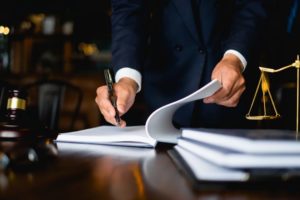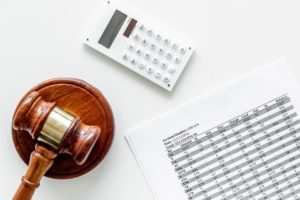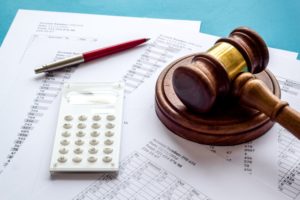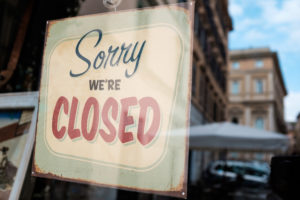
According to the United States Courts, you may be eligible to file for Chapter 13 bankruptcy if you:
- Have regular income (this includes people who are self-employed or own an unincorporated business)
- Do not have unsecured debts greater than $465,275
- Do not have secured debts greater than $1,395,875
If you filed a prior Chapter 13 bankruptcy, other factors might make you ineligible, such as whether your case was dismissed due to a court order. Our legal team can review your case to assess whether you are eligible to file for Chapter 13 or if another bankruptcy filing may be more suitable for you.
Chapter 13 Bankruptcy Allows You to Reorganize Your Debts
Chapter 13 bankruptcy can be a favorable option for people who can still repay a portion of their debts. Individuals who do not make enough income to pay back their debts and need total financial relief may need to file under Chapter 7.
A Chapter 13 bankruptcy typically involves developing a repayment plan lasting for three to five years, and the plan is based on the debtor’s personal finances and ability to pay. This allows individuals to refinance their debts, meaning that some of their debts may be discharged while they make reasonable payments for the remaining portion.
The Process for Filing Chapter 13
People who qualify for Chapter 13 bankruptcy can file a petition with the bankruptcy court in their district to get bankruptcy relief from their debts. A court-appointed trustee will then review the information submitted by the debtor, which includes the debtor’s:
- Assets, e.g., home equity or vehicle value
- Liabilities, e.g., credit card debts or personal loans
- Current income
- Expenditures, e.g., mortgage payments and other bills
- Certain questions about their financial history
Also, there are certain actions that must be done before an individual can file for Chapter 13 bankruptcy, such as completing a credit counseling course from an approved agency. If you have not begun preparations, our team can guide you so that your case is successful.
If You Are Not Eligible for Chapter 13 Bankruptcy
Other reasons why people might not be eligible for Chapter 13 bankruptcy include:
- You filed for bankruptcy within the past 180 days and your case was dismissed due to a court order violation or a hearing absence.
- You received a Chapter 13 debt discharge within the past two years and not enough time has passed.
- You do not make enough disposable income (in which case, you may be eligible for Chapter 7 bankruptcy).
- You are attempting to file as a business (in which case, you may be eligible for Chapter 11 bankruptcy).
There may be other financial options for you to reorganize your debts. For example, according to the United States Courts, Chapter 11 is not exclusive to businesses but can also be useful for individuals in some circumstances. This type of bankruptcy allows you to reorganize your debts and assets to meet your financial demands.
Our law firm handles multiple types of bankruptcy cases, so we can advise you on your legal options once we review your case.
Personal Injury Lawyer Near Me (828) 286-3866
Chapter 13’s Automatic Stay Can Give You and Your Family Peace of Mind
Creditors often pursue overdue debt via telephone calls, email, letters, and many other measures. This relentless pursuit of debt can cause stress and strain and can even make you reluctant to answer your own phone.
Bankruptcy court’s automatic stay can relieve you of this invasive and ongoing communication. According to the U.S. Courts, the automatic stay stops most collection activity. This form of relief is imposed by the court and has the added benefit of emotional relief.
While the automatic stay is in place, your creditors cannot:
- Start or continue debt collection lawsuits
- Start or continue to garnish your wages
- Contact you with demands for payment
- Proceed with vehicle repossession or home foreclosure
You do not have to understand the way it works or put it into place on your own. The bankruptcy attorney who represents you will explain how and when the automatic stay goes into effect. They will also explain the legal actions you can take if your creditors violate the restrictions of the automatic stay.
What Can I Do if My Creditor Keeps Calling Me?
Unless an exception has been made, your creditor cannot contact you after the automatic stay is put into place. If they do, you should immediately:
- Notify the creditor of your bankruptcy status
- Notify your attorney of the creditor’s action
- Notify the bankruptcy court of their contact
In some cases—particularly after repeated contact—your lawyer may help you file a lawsuit against the creditor. Your lawyer will inform you if this is an option in your case.
What a Bankruptcy Lawyer from Our Team Can Do for You
For many people who have never filed for bankruptcy, this can be an overwhelming process to tackle on your own. While you can file for bankruptcy without a lawyer, you might risk filling out paperwork incorrectly and having your case dismissed. Dismissals can cause delays or even make you ineligible to file for bankruptcy.
Should you decide to work with our law firm, we can handle crucial legal and administrative tasks, such as:
- Preparing and submitting paperwork
- Attending meetings and court hearings on your behalf
- Presenting your case to creditors, judges, and appointed trustees
- Reviewing your financial documents and statements to ensure they are accurate before submitting them for bankruptcy review
- Providing legal advice throughout the bankruptcy process
Our legal team can also explain the advantages and disadvantages of filing for Chapter 13 bankruptcy, as this can affect your credit score, ability to take out loans, and future financial prospects. Our bankruptcy attorneys are transparent in the legal advice they give, so if you have any questions, feel free to ask our team.
The Benefits of Choosing Chapter 13 Bankruptcy
When you decide to file for bankruptcy to alleviate the financial burden of insurmountable debt, it can be difficult to know which bankruptcy Chapter to choose. A lawyer in your area can help you make a well-informed decision.
If you choose Chapter 13 bankruptcy, its benefits include:
- Allowing you to pay select debts
- A longer period of repayment
- Discharging select debt
- Retaining possession of your home
In addition to debt reduction, Chapter 13 can also help you reduce or possibly eliminate damage to your credit caused by defaults or neglected payments. You can also extend and reschedule many secured debts in keeping with your filing plan.
A Hardship Discharge Is Available
Finances are complicated and yours may change drastically even after you file for bankruptcy. If so, your lawyer can help you request a hardship discharge. This option is available if:
- Circumstances beyond your control prevent you from complying with your repayment plan
- You have already repaid as much debt as your creditors would have received under a Chapter 7 filing
Debts that do not qualify for discharge cannot be included in a hardship discharge.
Our Bankruptcy Lawyers Can Help You File for Chapter 13 Bankruptcy
You don’t have to be alone in your bankruptcy case—we can help you consider your options. If you are still unsure about whether you are eligible to file for Chapter 13 bankruptcy, call our law firm or contact one of our Rutherfordton bankruptcy team members for a free case evaluation.
Our team at Farmer & Morris Law, PLLC handles bankruptcy cases involving Chapter 13, Chapter 7, Chapter 11, and Chapter 12. We can determine which form of bankruptcy you should file for and help you prepare your case. Reach out to our team today.








